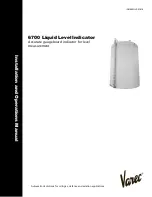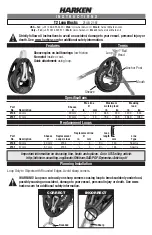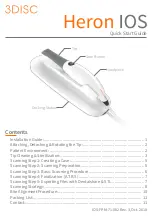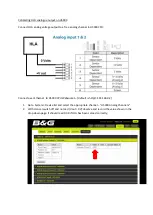
For your safety
47/ 84
Fresh grease separator plant Lipator-S-RA/Lipator-P-RA
EN
1 For your safety
Read the safety instructions before installing and operating the grease separator,
in order to prevent personal injuries and damage to property.
1.1 Intended use
Very greasy wastewater is a risk to pipes and drainage installations. Greases and oils
deposit on the walls of the pipes together with other wastewater constituents and cause
corrosion, blockages and odour nuisance. Therefore, grease separators are mandatory in
the industrial and trade sectors.
These include, for example:
■
Hotels, restaurants, refectories and canteens
■
Butchers‘ shops, slaughterhouses, meat processing factories
■
Canneries, ready meals producers, chip and crisp production
Only wastewater which contains greases and oils of vegetable and animal origin may be
discharged. Other possible uses and applications, and changes are not allowed.
Harmful substances must not be discharged, e.g.:
■
Faecal wastewater
■
Surface water
■
Wastewater containing mineral oils and greases
■
Wastewater from wet waste/shredder units
■
Wastewater from slaughterhouses
■
Solidifying greases in concentrated form (e.g. deep-frying fat)
■
The use of biologically active agents, e.g. products containing enzymes for converting
the fatty substances or for so-called self-cleaning, is not permitted in the grease
separator and the inlet pipes
Detergents, washing-up liquids, cleaning products, disinfectants and auxiliaries, which can
get into the wastewater must not form stable emulsions or contain or release chlorine.
For further information on suitable cleaning agents, refer to the technical information
sheets (German/English) issued by the German Commercial Dishwashing Association
(„Arbeitsgemeinschaft Geschirrspülen, Hagen“):
www.vgg-online.de
















































